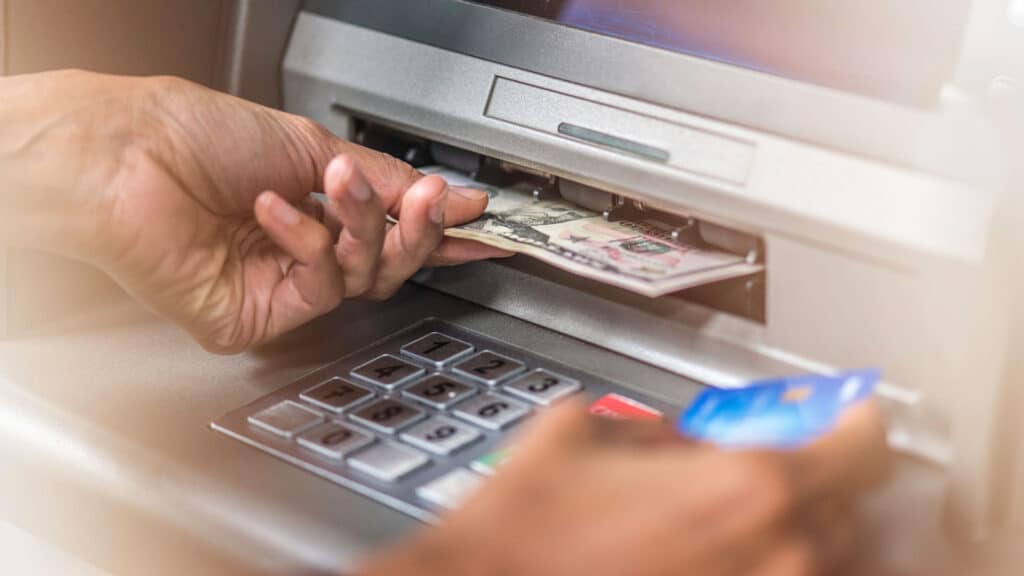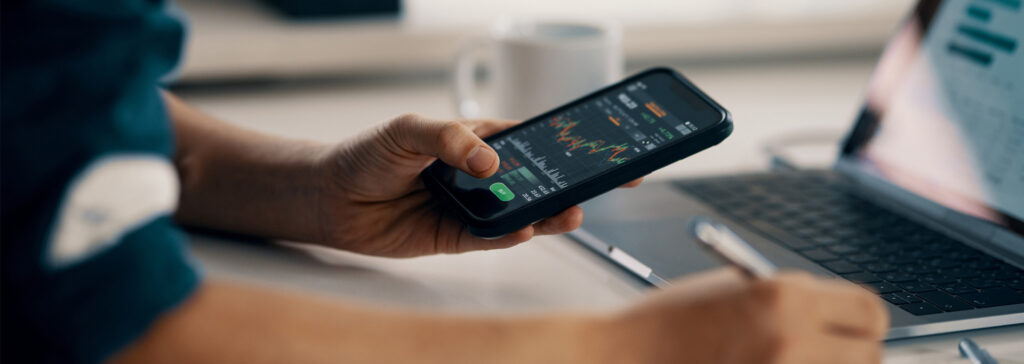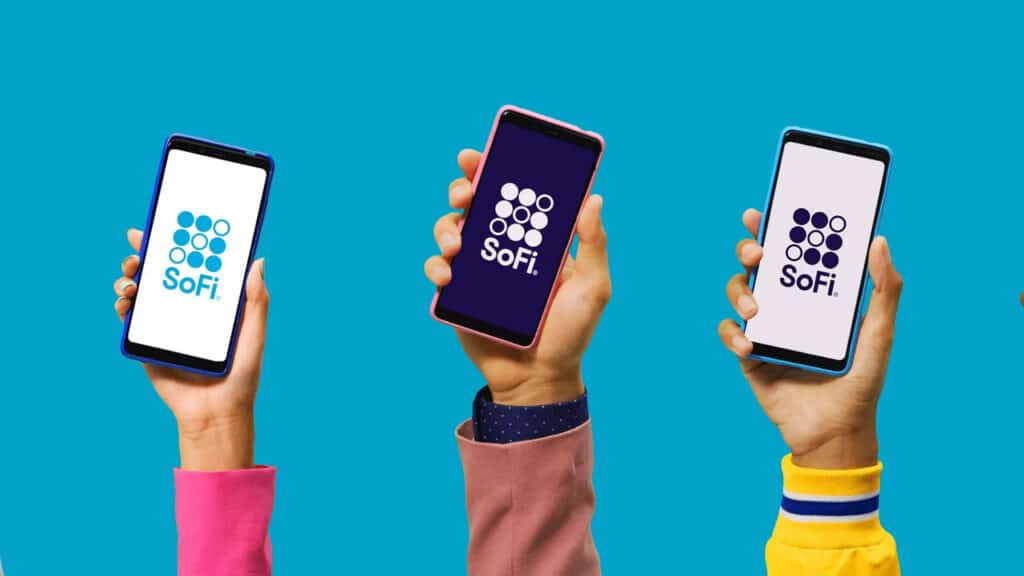Most products on this page are from partners who may compensate us. This may influence which products we write about and where and how they appear on the page. However, opinions expressed here are the author's alone, not those of any bank, credit card issuer, airline or hotel chain. This page may include information about American Express products currently unavailable on Slickdeals. American Express is not a partner of Slickdeals.
Nobody enjoys waiting for their paycheck, so why not get paid up to two days early? While it might sound unusual, more banks these days offer an early direct deposit feature to customers. Early direct deposit was introduced by financial technology firms and mobile banking apps, but it’s become an option with checking accounts at many online banks. Even some credit unions and traditional banks are beginning to offer this helpful feature.
But not all financial institutions offer early pay accounts, and some accounts may have specific requirements, such as meeting a certain minimum balance to qualify. We've rounded up the best banks that offer early direct deposit and what you need to know.
16 Best Banks With Early Direct Deposit
Here’s a list of banks offering early direct deposit if you’re looking to get your paycheck up to two days sooner.
| Bank | Early Direct Deposit Estimate |
|---|---|
|
Ally Bank |
Up to two days early |
|
Axos Bank |
Up to two days early |
|
Capital One |
Up to two days early |
|
Chase |
Up to two days early |
|
Chime |
Up to two days early |
|
Citizens Bank |
Up to two days early |
|
Current |
Up to two days early |
|
Discover Bank |
Up to two days early |
|
Fifth Third |
Up to two days early |
|
Huntington Bank |
Up to two days early |
|
LendingClub |
Up to two days early |
|
OneUnited Bank |
Up to two days early |
|
Regions Bank |
Up to two days early |
|
SoFi |
Up to two days early |
|
Varo Bank |
Up to two days early |
|
Wells Fargo |
Up to two days early |
Explore the Best Bank Bonuses Currently Available
Visit the Marketplace
How Does Early Direct Deposit Work?
Employers generally submit payroll information to the Federal Reserve two days earlier than payday. The Fed then notifies your financial institution that money is on its way. Banks offering early direct deposit will allow you to receive qualifying direct deposits up to two days early through Automated Clearing House (ACH) transfers, which is how your employer moves money into your bank account.
If you’re interested in early direct deposit, it’s worth confirming that your bank offers this feature.
How Do I Set Up Early Direct Deposit?
You won’t need to do any heavy lifting to be eligible for early direct deposit, but there are three necessary steps to take:
- Open an account that offers this feature.
- Complete a direct deposit form and set up direct deposit payments from your employer to that account.
- Ensure you meet any account requirements, such as initial deposit requirements, minimum balance requirements, etc.
Some banks automatically enroll you in its early direct deposit services, while others may require that you sign up for the feature.
Do Early Direct Deposit Accounts Have Fees and Limits?
Early pay is generally a free option, but with some accounts, certain fees or limits may apply. For instance, with Chase Secure Banking, you’ll pay a $4.95 monthly maintenance fee that cannot be waived. With some banks, you may be able to waive monthly fees by meeting certain requirements, but Chase doesn’t offer this option for its Secured Banking account.
Transaction limits may also apply, so be aware of that as you compare options. With the Chime checking account, for example, there’s a $515 daily limit for ATM withdrawals and a $2,500 total daily limit for debit card purchases and withdrawals. Be sure to read the fine print on any prospective accounts before signing up. Doing so will help ensure you understand applicable fees and limits.

9 Most Common Bank Account Fees (and How to Avoid Them)
How Do I Know if My Bank Has Early Direct Deposit?
It’s typically easy to tell if a traditional bank, online bank, or credit union offers early direct deposit. Most financial institutions will prominently display this information on their websites to help attract prospective account holders. After all, it can be immensely helpful to have access to your earned income sooner than you’d get with another bank.
As you compare new checking accounts, look for language on financial institutions’ websites indicating your money may be available up to two days before payday. If your bank doesn’t offer early direct deposit just yet, it may become available down the line. Research suggests that more institutions are considering adding real-time payments to their offerings to address the country’s push toward modern buyer behaviors and faster payment technologies.
Benefits of Early Direct Deposit
- Quicker access to your earned income: You could get your paycheck up to two days sooner with early direct deposit features.
- Reduced risk of missing bill payments: This may allow you to avoid missing bill payments or making late payments because you didn’t have funds available.
- Reduced risk of overdrafting your checking account: It’s also possible your risk of overdrafting—and overdraft fees—could be reduced with early direct deposit.
- Ability to earn more interest: If your account is interest-bearing, you could earn more interest on your checking balances if your paycheck arrives sooner than usual.
Potential Drawbacks of Early Direct Deposit
- Employer payroll distribution times can vary: While it’s possible your employer files payroll deposits with the Federal Reserve two days sooner than when you receive funds, it’s not always the case. Consider confirming payroll distribution times with your company.
- Paycheck isn’t guaranteed to arrive two days early: If your employer distributes payroll at different times, your paycheck may not consistently arrive a couple of days early.
- Overdraft may occur if you expect to get paid two days early consistently: If you have automatic bill payment set up, it’s possible you may overdraft your checking account balance if you count on early direct deposits each pay period.
What to Look for When Opening a New Account
Beyond an early direct deposit option, you’ll also want to look at other features as you compare checking accounts. Just because an account offers early pay doesn’t mean it’s the best choice for your financial situation. Here’s what to research before moving forward:
- Monthly service fees: Some traditional banks, credit unions, and online banks charge monthly service fees that may or may not include early pay. Be sure to look into these costs before opening a new account. Also look into other fees, including overdraft fees.
- Minimum opening deposit requirements: Also review minimum deposit requirements before you move forward. Typically minimum opening deposit requirements are small, but it’s still worth understanding what’s required. For example, Chase requires early pay customers to have $500 or more in monthly direct deposits.
- Minimum balance requirements: Certain banks may also have minimum balance requirements for new checking accounts. For instance, you may need to maintain an average daily balance of $500 in order to earn interest on your money.
- Debit card access: Most checking accounts come with a debit card, but be sure to confirm this if you'd like to make debit card purchases.
- ATM network: Look into each bank’s ATM network. Do they offer convenient ATM access? How about ATM fee refunds for out-of-network ATM use?
- Physical branches: Do you want an in-person banking option or are you 100% comfortable with online banking? Determine if you can visit physical branch locations if that’s important to you.
- Other features and banking products: Are you looking for an all-in-one banking solution? If so, look at whether banks you’re considering offer things like mobile banking apps, mobile deposits, savings accounts, debit cards, credit cards, certificates of deposit, and more.
 Related Article
Related Article
5 Low-Risk Ways to Earn More Money On Savings
Frequently Asked Questions
-
Employers often submit payroll data to the Federal Reserve early, and The Fed gives your bank a heads up that money is arriving soon via Automated Clearing House (ACH) transfer. Bank institutions offering early pay services understand that payments are on the way and pass this benefit onto account holders by giving them access to their money sooner.
-
There aren’t typically fees to use early direct deposit, though there may be monthly service fees associated with certain accounts. You may also need to meet minimum balance requirements or other criteria. Research fees and requirements before opening a new checking account.
-
Early direct deposits hit your account up to two days sooner than usual. But this timeframe may vary depending on your employer and how they handle payroll.
-
Bank of America doesn’t offer early direct deposit. Many traditional banks have been slower to adopt this convenient feature. Currently, you’ll receive all direct deposits to your Bank of America accounts the day of your scheduled payment. So for instance, if you’re usually paid on a Friday, that’s when your money will arrive.
-
Various financial institutions offer early pay banking services. Financial technology companies and online-only banks were the first to adopt this feature, but it’s become more common at credit unions and even some traditional banks. So if you’re looking for early direct deposit, there’s no shortage of options available to you.
-
Chase does offer an early pay option with its Chase Secure Banking account. You can get access to funds up to two days sooner than you typically would. It also offers helpful features like direct deposit for tax refunds, government benefits, and pensions.









